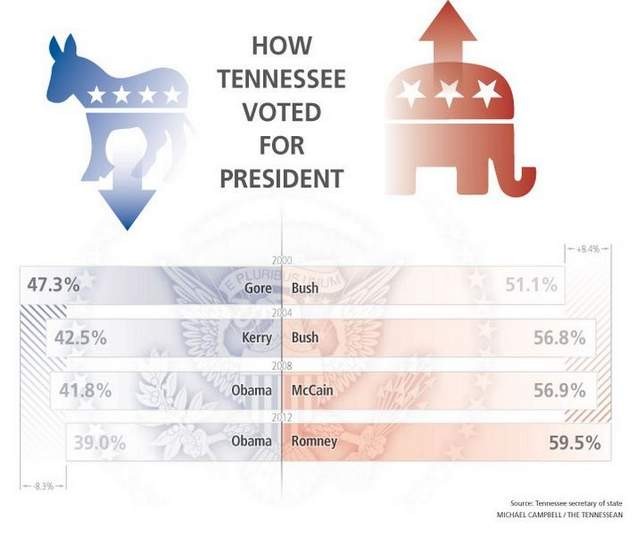On July 12, 2001, nearly 20 years before an angry multitude of Trump supporters flooded the U.S. Capitol, the Tennessee state Capitol building in Nashville was similarly invaded by a belligerent mob as legislators prepared to take up the issue of a state income tax.
Just as was the case in Washington on Wednesday, the assembled lawmakers were interrupted in the middle of vital deliberations. Law enforcement officers were overwhelmed, windows were broken, and various other forms of damage resulted as mobs roamed the hallways, screaming and pounding the building’s hastily locked oaken doors, trapping the legislators in their chambers and causing the hasty adjournment of the special session then under way.
One of the main actors in the drama was then state Senator Marsha Blackburn of Franklin, whose emailed alerts to income-tax opponents from the state Senate chamber had generated the first crowds to gather on Capitol grounds.
On Wednesday of this week, amid the mob violence in Washington, Blackburn, now a U.S. Senator, dropped her intent to vote against the ritual acceptance by Congress of President-elect Joe Biden’s inauguration, as did Tennessee’s other Senator, the newly installed Bill Hagerty.
The state’s seven Republican members of the U.S. House of Representatives, including David Kustoff of the 8th District, would follow through on their votes against accepting the election. The following article is a first-person account of the 2001 siege of the state Capitol, witten by Flyer politics editor Jackson Baker, who was on site for those events.
A Night to Remember: State Government Under Siege
 Jackson Baker
Jackson Baker
Marsha Blackburn, from her Congressional days.
POSTED BY JACKSON BAKER ON WED, JUL 18, 2001:
Jim Henry of Kingston in East Tennessee, who back in the ’70s and ’80s was a mover and shaker in the relatively sacrosanct Tennessee legislature of that time, was in Memphis Saturday to promote himself as a centrist Republican alternative to U.S. Rep. Van Hilleary, the Gingrich-style conservative who, many think, is close to having a lock on the Republican nomination for governor next year.
Henry — who is cast in the square-jawed, white-haired mold of several other 2002 hopefuls (gubernatorial wannabe Randy Nichols, the Knox County D.A., for example, or state Rep. Lincoln Davis, a Democratic aspirant for Hilleary’s 4th District congressional seat) — talked about a number of things to the members of the monthly Dutch Treat Luncheon at the Audubon Cafe.
Among them were taxes (he’s for reform and isn’t ready either to endorse or to rule out any version of it, including the income tax), TennCare (he’s for reforming it, too, but supports the state-run insurance program as a financial and medical boon for Tennessee’s citizens), and fiscal policy in general (he came out for prioritizing state needs, raising enough revenue to pay for them, and then eliminating any excess money — presumably by tax cuts — before government thought up a way to spend it).
But the one thing that seemed to preoccupy Henry, both in his public remarks and in private conversation afterward, was the debacle in Nashville last Thursday night. The state capitol which had been his home base for so many years had been attacked by protesters as, coincidentally or not, the lawmakers inside forsook a last-ditch good-faith effort to produce a long- term budget.
They had instead hastily adopted a bare-bones no-new-taxes version which leaves many needs unspoken for and which may be vetoed by Governor Don Sundquist — leaving the funding process back where it started. (Actually somewhat further back, since mandated spending, cost-of-living increases, and the like have mounted.)
Not only epithets but rocks were thrown Thursday night by the throngs that materialized after repeated entreaties to do so by radio talk show hosts Phil Valentine and Steve Gill. Windows were broken in Governor Sundquist’s first-floor office, and legislators were verbally abused and even manhandled.
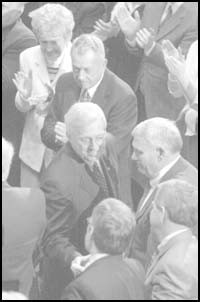 Jackson Baker
Jackson Baker
Governor Don Sundquist, circa 2001
Informed that Republican Senate Leader Ben Atchley, no supporter of the income-tax legislation that the crowd had turned out to protest, had been shoved two or three times as he made his way into the Senate chamber, Henry seemed especially troubled.
“That’s dangerous for someone like Ben. He’s had several bypass operations. We can’t be having that,” the GOP hopeful said, shaking his head and furrowing his brow. “I don’t know how we’re going to do it, but we’ve got to find a way that will let us deal with important questions and, at the same time, return civility to state government!”
Neither of those goals seems anything but remote after Thursday night. Reel backward in time from Henry’s weekend remarks, back beyond Thursday night itself, and you reenter a time frame, perhaps a full six months worth, when it was fashionable not to show compassion for this General Assembly but to ridicule, even condemn it, for its general fecklessness.
The legislature, faced with an estimated $250 million deficit that would grow to $800 million next year, had been meeting since January, availing itself of a technicality that allowed it to continue its protracted deliberations into a new fiscal year. There it sat in the muggy Nashville heat of mid-July, still unable to agree on a budget that wouldn’t even allow the state to meet its current needs, much less make a few modest improvements.
State Senator John Ford of Memphis, whose legislative achievements are often overlooked because of his sometimes outlandish private behavior, earned the admiration of many observers late in the session as he both tried to break the revenue impasse with a flat-tax version of the income tax and excoriated the leadership of his own party and his own Senate for not dealing with reality.
They needed to resign and step down if they wouldn’t lead, he said in a memorable (and precedent-shattering) Sunday session. And, as the Senate bogged down Thursday and seemed likely to timidly accept some version of the bare-bones budget that they had more or less forced a frustrated House of Representatives to adopt because of the Senate’s own inaction, Ford had had enough.
He stalked out of the chamber and strode down the long tunnel leading from the capitol back to his office, announcing, “I’m leaving. They’re not going to do anything worth staying around for.”
And the flamboyant senator, famous for his fast driving, was soon enough hastening down I-40 back to Memphis.
But meanwhile, something of a miracle occurred. A group of senators from both sides of the aisle, determined to save something of their chamber’s reputation and to get a budget measure passed that would not force the state to gut vital programs (education and health services prominent among them), stirred themselves Thursday afternoon to putting together a workable formula.
Senator Bob Rochelle of Lebanon, the Democrat who is the Senate’s (nay, the legislature’s) leading exponent of an income tax, and Republican Sen. David Fowler of Signal Mountain, a conservative’s conservative, began working on a compromise that would include Fowler’s insistence on allowing a statewide vote of some sort before an income tax could be legitimized.
Over time, Governor Don Sundquist, among others, had concluded (reluctantly, to be sure) that true tax reform could probably not be achieved any other way. A sales-tax increase had proved unpassable because almost everybody saw that Tennessee’s sales tax was already too high relative to its neighbor states, was based on an outmoded economy, and increasingly was incapable of accommodating the state’s future revenue needs.
For months, various hodgepodge formulas involving other measures — services taxes, sales-tax extensions, “sin” taxes on alcohol and tobacco, car-tag increases, etc., etc. — had been shopped around and failed.|
That left only the income tax, and Rochelle, Fowler, and various others — thanks largely to the tireless helmsmanship of Sen. Jim Kyle, the Memphian who was co-chairman and motive force of the joint House-Senate committee charged with finding a solution — had come close at this 11th hour to an agreement.
The House had already signaled its willingness to accept an income tax. All the Senate had to do was find a formula. At one point, with 14 votes in the bag for some version of an income tax, Rochelle came off his insistence on a graduated version (Republicans traditionally favor the flat- tax principle) and agreed on a statewide referendum that would either validate or sunset the tax one year after its institution.
Fowler, Sen. Randy McNally of Oak Ridge, and Collierville’s Sen. Mark Norris — who doubled as negotiators and as the three swing Republican voters who could make the proposal work — then conditionally accepted the proposition, according to Kyle, and agreed to take it back to their caucus for it to approve or reject.
It was at that point that Sen. Marsha Blackburn, who represents the elite Nashville suburb of Franklin and who functions as the poster girl for all populist right-wing causes, sat at her legislative desk and began batting out e-mails on her taxpayer-provided laptop, informing all members of her ideological network — including, crucially, Valentine and Gill — that the pointy-headed scoundrels were at it again. They were about to pass an income tax.

The broadcasters — competitors on the air but ideological allies — soon took to the airwaves and, as they had done repeatedly every time in the last two or three years that the legislature took such legislation up, called on their audiences to respond. In years before, the response had been pickets and caravans of horn-honkers surrounding the capitol. Now the protest would take a more direct form — mass invasion of the capitol grounds and its hallways.
The throngs began to gather even as the three Republican negotiators were running the plan by their party caucus. On a Senate telephone line, meanwhile, Lt. Governor John Wilder, who had been verbally savaged by Ford, his usual ally, for some undeniable back-and-forthing on the income tax, was trying to find the Memphis senator. It was an every-vote-counts situation.
He eventually reached the voice mail on the motoring Ford’s busy cell phone, saying into the receiver, “John, this is John Wilder. You’ve got to be back here at 6:30 for us to vote. This is important. You’ve got to get back here.” Under the circumstances, it was an Offer That Could Not Be Refused from the still-powerful 80-year-old presiding officer of the Senate. On his way up an escalator to the Senate chamber for the contemplated vote, Murfreesboro Democrat Larry Trail was accosted by three T- shirted youths who seemed to have come out of nowhere and looked out of place in the building (though, to be sure, they had the citizen’s right to be there).
One of the young men warned Trail, formerly an income-tax opponent, not to waver on the issue. “If you do,” he said, “I will make sure you lose in the next election. I will work to make sure you are defeated,” his tone and demeanor more belligerent even than the words themselves.
“It’s behavior like yours that makes me want to change my mind,” the husky Trail responded in his best down-home Middle Tennessee brogue. “I don’t take kindly to threats.” With that, he turned his back and began walking briskly up the escalator steps. The scheduled vote was now only minutes away.
Behind Trail, as he entered the hallway leading to the capitol elevator that would take him to the second floor to the Senate chamber, the three young men seemed almost to multiply.
A trickle of citizens — most casually clad, others in suits, some of them moms and dads toting their small children, most of them visibly inflamed either by anger or by zeal — appeared instantly to have become a flood. The capitol building might have been some stricken Titanic which had suddenly sprung a leak.
Tennessee’s elected senators and representatives (the House, too, had been summoned by its leader, Speaker Jimmy Naifeh, to stand ready for action) made their way as best they could to their chambers.
Instead of facing only the imperatives of a historic vote, though, they would soon be dealing with an unprecedented reaction from a fast- growing crowd which the conservative Republicans Fowler and Atchley would be the first to describe by another name: mob.
Tennessee’s elected lawmakers would find themselves literally under siege.
Later on, it would get said that factors other than the pure intimidation of the mob caused the pending budget deal to break down in the state Senate Thursday night — before a vote could be taken on an income tax- cum-referendum package that would fund present state priorities, including education and the state-run program for the uninsured and uninsurables known as TennCare, and pave the way for future ones.
So many variants got told by this or that key legislator that it’s hard to determine which straw might have broken the camel’s back. Depending on who was doing the explaining, it was either Democrat Rochelle’s insistence that an income tax be in effect for at least a year before a statewide vote on it could be taken, or the House Democrats’ insistence on the same thing, or Republican Fowler’s refusal to yield on having a referendum (alternately, a Constitutional Convention) come first, or the GOP Senate Caucus’ negative reaction to the deal brought them by Fowler, McNally, and Norris, or something to do with TennCare, or — what you will.
Or maybe it wasn’t a straw at all, maybe it was just hard for some to admit that they had been cowed by the sheer bludgeoning force of the huge and madding crowd that swarmed into and around the state capitol Thursday evening as the legislators were, in theory, scheduled to debate the income-tax issue like civics-text ladies and gentlemen and then vote on it.
Fowler was one of those who, hither and thither in the confusion of Thursday night, would suggest conventional parliamentary snafus as the key to the breakdown, but he expressed himself otherwise in the immediate aftermath of the failure, as Senator Kyle of Memphis (under urgent pressure from Lt. Governor Wilder, a realist’s realist) finally had to cut his losses and rush through a resolution for a modified version of the same no-new-taxes stopgap budget passed by the House at the very end of the fiscal year almost two weeks earlier.
It was a plan that would spend Tennessee’s entire portion of tobacco-settlement money in one year and still leave the state short of essential services, and it was taken for granted that the House — always readier to move forward in this session than the Senate — had passed it only to present a worst-case scenario to the other body and make it act.
Said Fowler on the floor to his colleagues and to the world at large, even as, amid a mounting cacophony out in the hallway, the final white- flag vote was about to be taken inside: “The activities of the talk-radio people and Senator Blackburn have killed the right of the people to vote. I think the mob effectively killed their opportunity to vote on this issue.” (Norris would say that Blackburn’s actions, in e-mailing her Paul Revere-like alarms to the denizens of the populist right, had been the legal equivalent of “yelling fire in a crowded theater.”)
Fowler proceeded: “We discussed the possibility of a means by which people could have a say on the tax structure with their votes. Those people outside are protesting not knowing we were trying to give them a vote.”
The “people outside” were at this point chanting “No Means No!” over and over and literally hammering at the heavy oak doors which — closed and manned now by highway patrolmen and city police, who were called in to augment the normal contingent of legislative door guards — were all that stood between them and the prospect of some unprecedented (for Tennessee) form of direct intervention.
Apologists for the demonstrators — and there were some — would see it all as pure participatory democracy, of course, and, indeed, for all the raucousness and shouting and booing and shoving and door-pounding and (later) window-breaking, most of the protesters kept a decorum of sorts.
A case in point: Well after the vote was taken and the parliamentary issue was settled in both the Senate and the House (which, resignedly this time, reenacted its similar vote of a week before), veteran Tennessean Capitol Hill reporter Duren Cheek and I decided to leave, eschewing the safety of the interior tunnel which, in the labyrinthine Capitol-Legislative Plaza complex, led back to the Plaza’s press offices and, at a somewhat further remove, to the general vicinity where my car was parked. The unusual reason for this: Duren has a vision quirk whereby he simply sees better out of doors, night or day.
People began to bait us almost as soon as we showed up outside, demanding to know if we were legislators as we threaded our way through them down the capitol steps. I suppressed the urge to say something waggish like, “What? Don’t you recognize Bob Rochelle?” This crowd had, after all, been brought to the emotional edge or it wouldn’t have been where it was, doing what it was.
Then came a potentially chilling moment. Of a sudden, Duren, a portly man well into his middle years, went down on the hard concrete of the first landing, and five or six men from the crowd lunged toward where he lay.
In one of the alternative, multiple universes that the late French fictionist Alain Robbe-Grillet might have concocted from such an image, the outcome could have been sinister. The reality was, in fact, quite benign. The visually challenged Duren had just tripped and fallen, that was all, and the crowd members who reached for him did so as Good Samaritans. They helped him to his feet, firmly but gently.
Earlier, Senator Steve Cohen (D-Memphis) had played comic toreador with the crowd. At the height of its anger, he had entered the Senate chamber brandishing a large-size Planters can with the word “Nuts” in bold and held it high before the crowd, which howled in derision as Cohen, an incorrigible maverick, beamed.
The experience of the venerable Atchley of Knoxville lacked any such satisfying resolution. The fact that the Republican Senate Leader has been a consistent opponent of the income tax had put him in no good stead at all as he tried to make his way through the crowd. The suited and bespectacled Atchley could not be mistaken for anything but a legislator, almost an archetypal vision of one, and he had gotten shoved several times as he made his way through the crowds to get to the Senate chamber. “I don’t mind expression, but that’s mob rule,” Atchley, a mild man normally given to understatement, would say later.
Elsewhere the crowd activity was even less gallant. After all, had these put-upon citizens of the (barely) middle class not heard, over and over again on talk radio, that an income tax would grab up fully 50 percent of their available funds? (And never mind that Senator Rochelle and others had released studies showing, for most Tennesseans, an income tax with corresponding reductions in the sales tax would result in a lesser tax burden overall.)
At some point, a few people in the crowd had begun throwing rocks and other ad hoc missiles, targeting the first-floor office of Governor Sundquist, who — with Senate Speaker Pro Tem Rochelle and House Speaker Jimmy Naifeh — constituted what to the members of this crowd was an unholy trio bent on taxing them into personal insolvency.
“Thieves” was a word frequently heard from callers to the incendiary talk shows presided over by Messrs. Valentine and Gill — which worthies continued to broadcast from the periphery of the capitol grounds Thursday night, with Valentine even suggesting to his auditors such questionable mischief as a nocturnal visit to the Lebanon residence of Senator Rochelle.
At some point in the evening, State Rep. John Mark Windle (D- Livingston) was in the capitol building walking back to his office when he was confronted by a rush of demonstrators. Thinking to find sanctuary, he stepped into the governor’s first-floor suite and sat down on a couch in one of the inner offices. Then, as he would recall: “A rock came through the window about half the size of a football and landed at my feet. … They were banging their fists on the windows and hollering. It was bizarre.”
While all of this was going on, the normal inhabitant of the governor’s office, Don Sundquist, was away making a speech at an economic development conference. Several times he was called away to the telephone to get an up-to-date report on the mayhem going on over at the capitol, and when a tobacco lobbyist in attendance at the governor’s speech made ready to go over, out of curiosity, Sundquist bade him stay, advising that it wasn’t safe.
The governor would eventually issue a statement: “I appreciate the right of all Americans to free speech and peaceful protest. I do not, however, approve of those who advocate violence and I regret that occurred at the capitol.
“State employees, legislators and law enforcement officers should be able to do their jobs in a safe, reasonable way. I am particularly critical of some radio talk show hosts and at least one legislator who encouraged disruptive behavior and destructive acts. I hope the budget debate will continue, but in a calm, reasonable way. My top priority has [been], and continues to be, the welfare of Tennessee’s children.”
If some of that sounded self-serving, it was a fact that Sundquist had for two years risked his political reputation to pursue tax reform and had, way back in February, proposed a widely admired education initiative. In the stopgap budget that got passed, not only was the plan itself utterly gutted, but short-term spending for the existing requirements of public education was threatened (not to mention its long-term prospects, since the $560 million tobacco windfall, once used up to fill out this year’s bare-bones budget, would not be available for the year after).
State employees, who had lobbied hard for a cost-of-living pay raise, would get a modest increase of 2.5 percent. (Noting that the raise was being paid for during the next year with the one-time tobacco money, Norris said the pay raise might amount to so much “severance pay.”)
TennCare would be held solvent for at least another year (after that, the wolf would be back at the door), and the Department of Transportation’s roadbuilding funds — untouchable pork, even in these straitened times — would be preserved. But, all in all, a full $340 million had been cut from Sundquist’s budget recommendations, and it wasn’t over with. The governor would be required to find ways of paring at least another $100 million over the course of the coming year. The immediate word from Sundquist was that the budget was “a likely candidate” for a veto, and, in preparation for such an eventuality, both houses passed resolutions obliging them to return on August 6th for an override or other action in case of a veto or to come back in January, if no veto occurred.
There were also rumors that the governor, should he let this budget pass for the moment, would call the legislature back in special session sometime this fall. Sundquist had already called two special sessions to plead for tax reform, in 1999 and in 2000, and there was Nothing Doing both times.
Even so, and the very real merits of the case aside, a gubernatorial aide conceded that Sundquist, who was being mocked as irrelevant in some circles and whose name, if it was used at all, had fallen to the bottom of news accounts of the budget impasse, might have to do something hard-nosed just to remain a player.
Whatever it portended, few of the legislators — exhausted and, in some cases, shell-shocked — had the heart for any more protracted battles.
Wilder had concluded the bizarre climactic Senate session of Thursday night with a public prayer from the Speaker’s podium in which, against the ironic background noise of the continuing crowd mayhem outside, he proffered his standard Panglossian tribute (“You are good”) both to the Almighty and to the Senate as a body for the process just completed.
It is fair to say that most legislators were of another mind. Late Thursday night, a group of them were licking their wounds at the bar of the nearby Sheraton, a traditional oasis for members of the General Assembly, and Murfreesboro’s Larry Trail, the same Larry Trail who had stood down one of the first protesters on the scene earlier in the evening, was musing out loud.
“I just don’t like the way it looked, the way it made us look,” he said of videotaped footage of the evening, which had been shown and reshown on TV in Nashville and elsewhere and was even then undergoing another replay on the big TV set overhanging the Sheraton’s bar area.
“It made us look like we were afraid, that they made us back down,” he said, and then looked down at the floor, as if contemplating a future that, if anything, might be even bleaker than the mortifying present tense just experienced.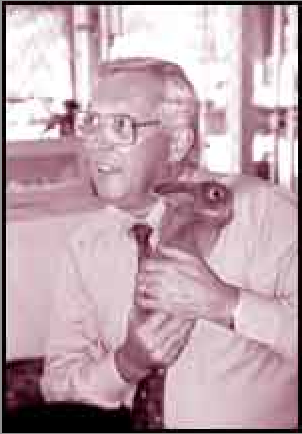 Jackson Baker
Jackson Baker
Governor Don Sundquist and a bunny. A picture that the Flyer never missed a chance to put in the paper, back in the day. One more time for old time’s sake.
Abruptly, he brightened. “Let’s go to Jimmy Kelly’s,” he suggested, naming the Vanderbilt-area watering hole where, from time immemorial, legislators had gathered in the late hours, to cut their deals or, as the case might be, to leave their troubles behind them.
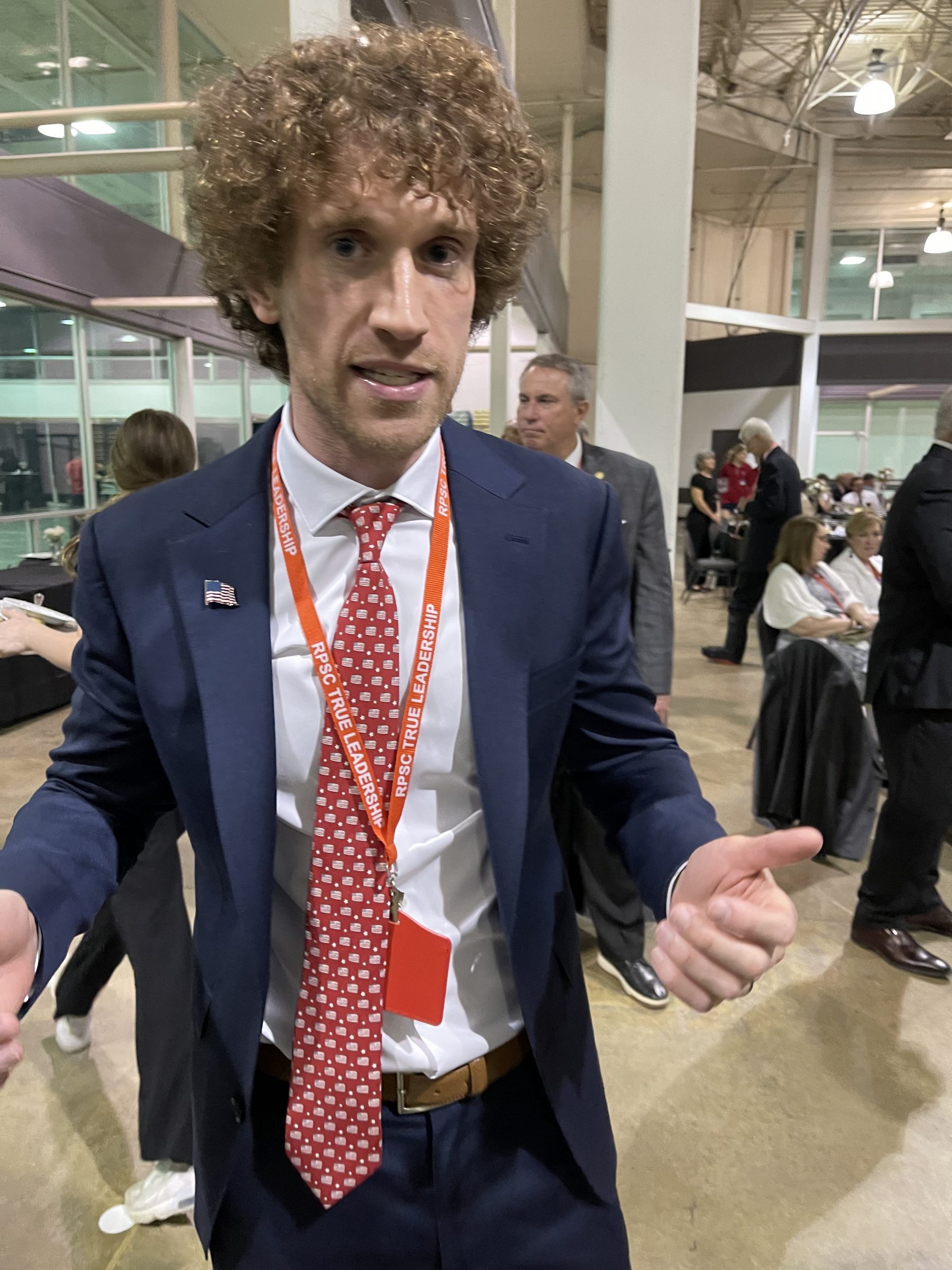
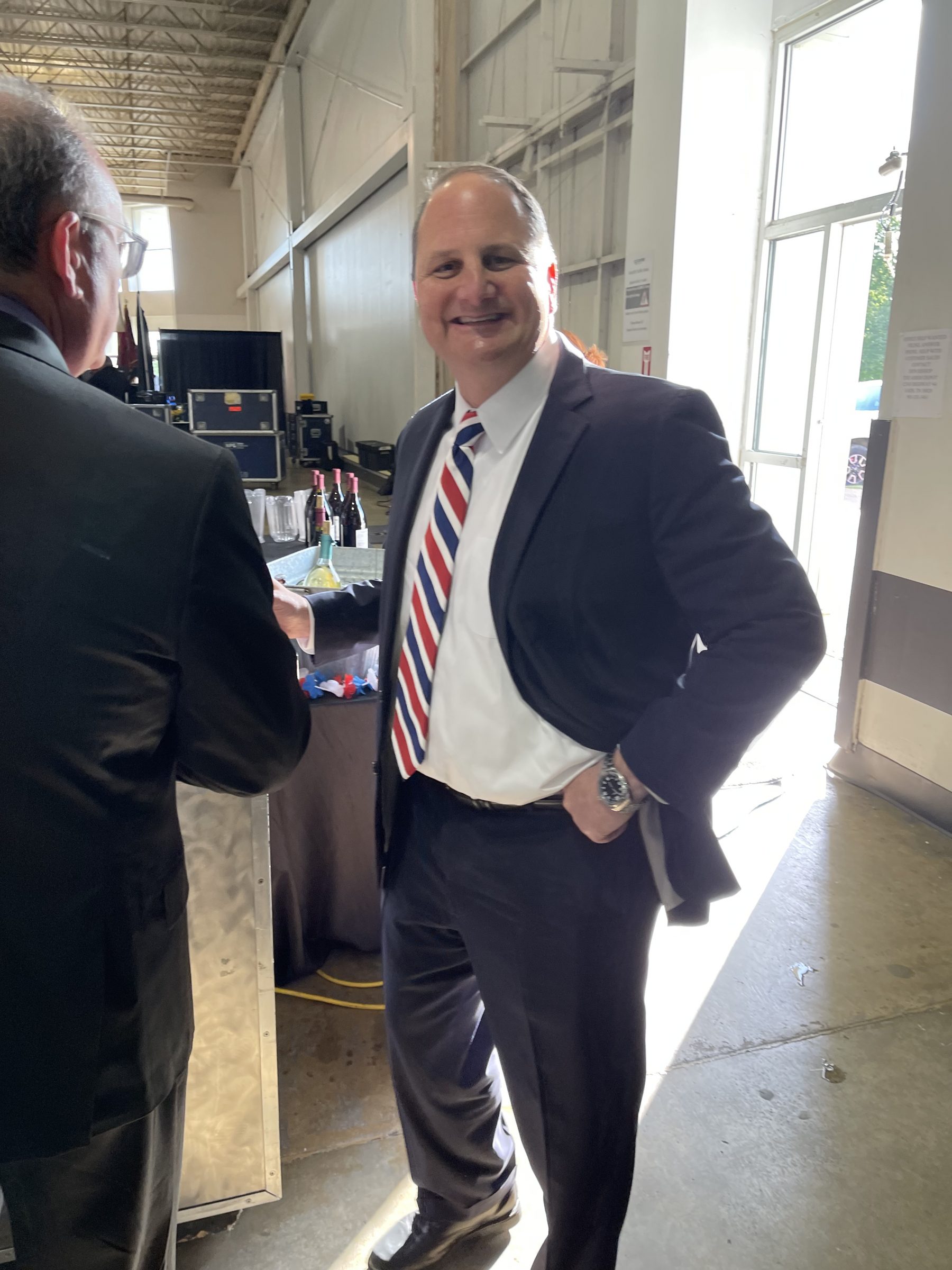
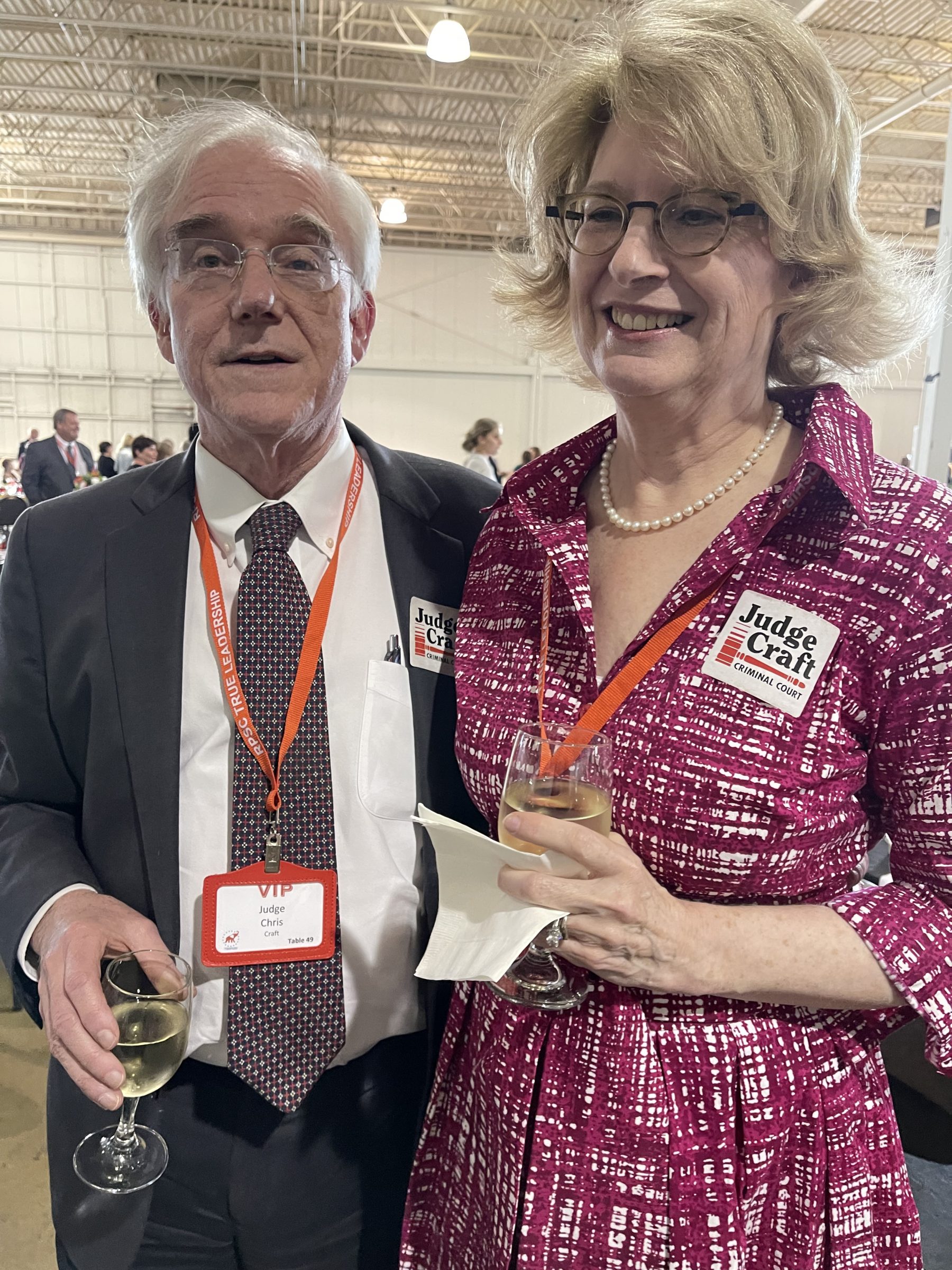
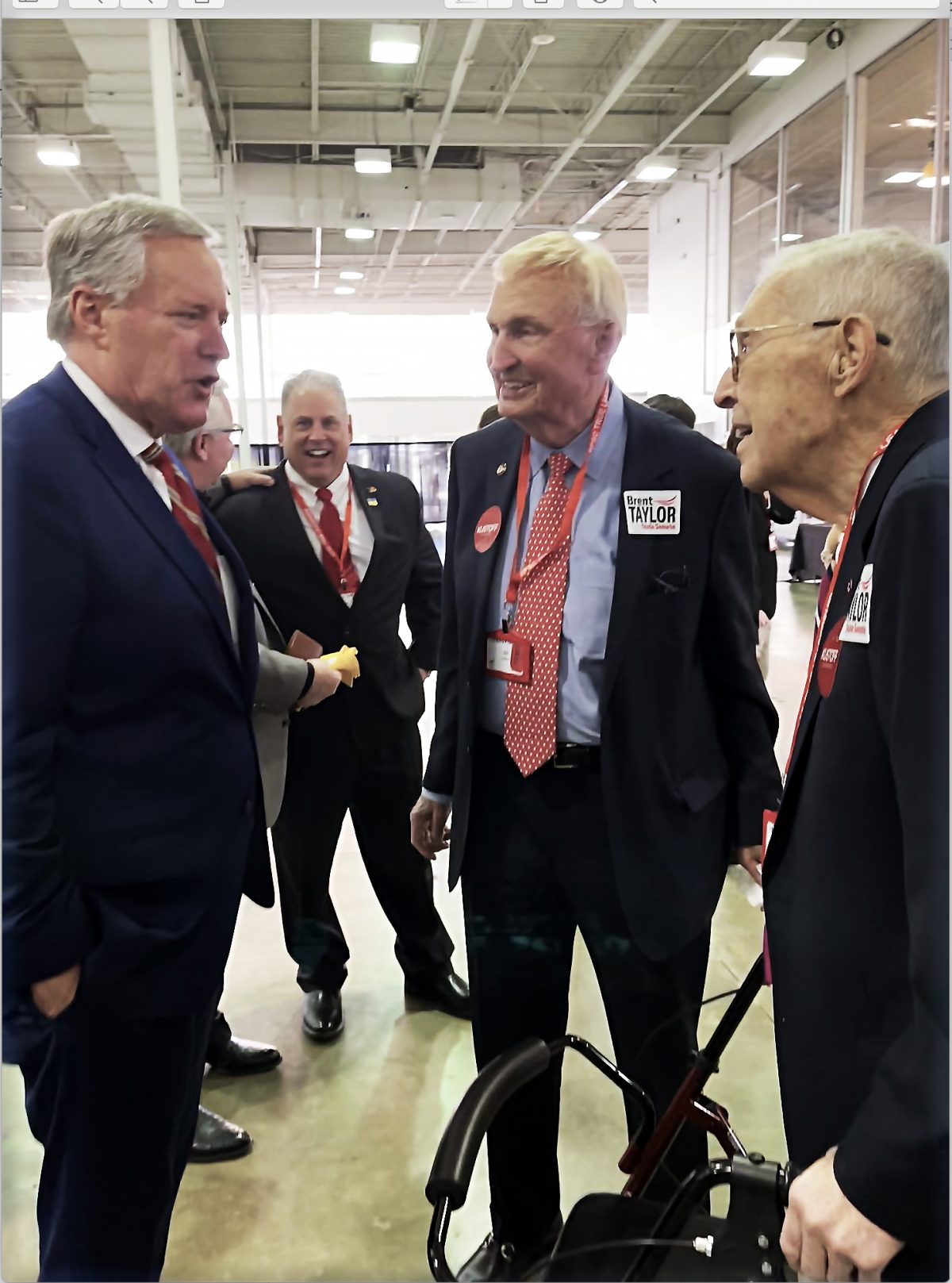
 Jackson Baker
Jackson Baker  Jackson Baker
Jackson Baker 
 Jackson Baker
Jackson Baker 